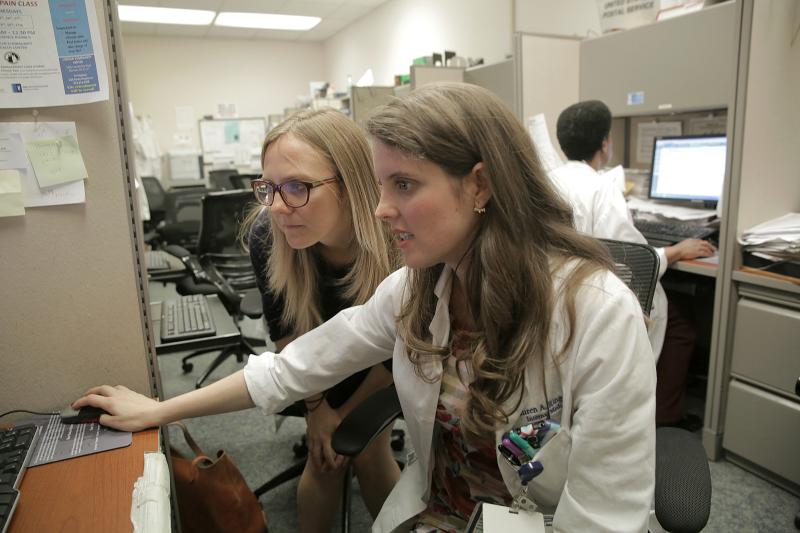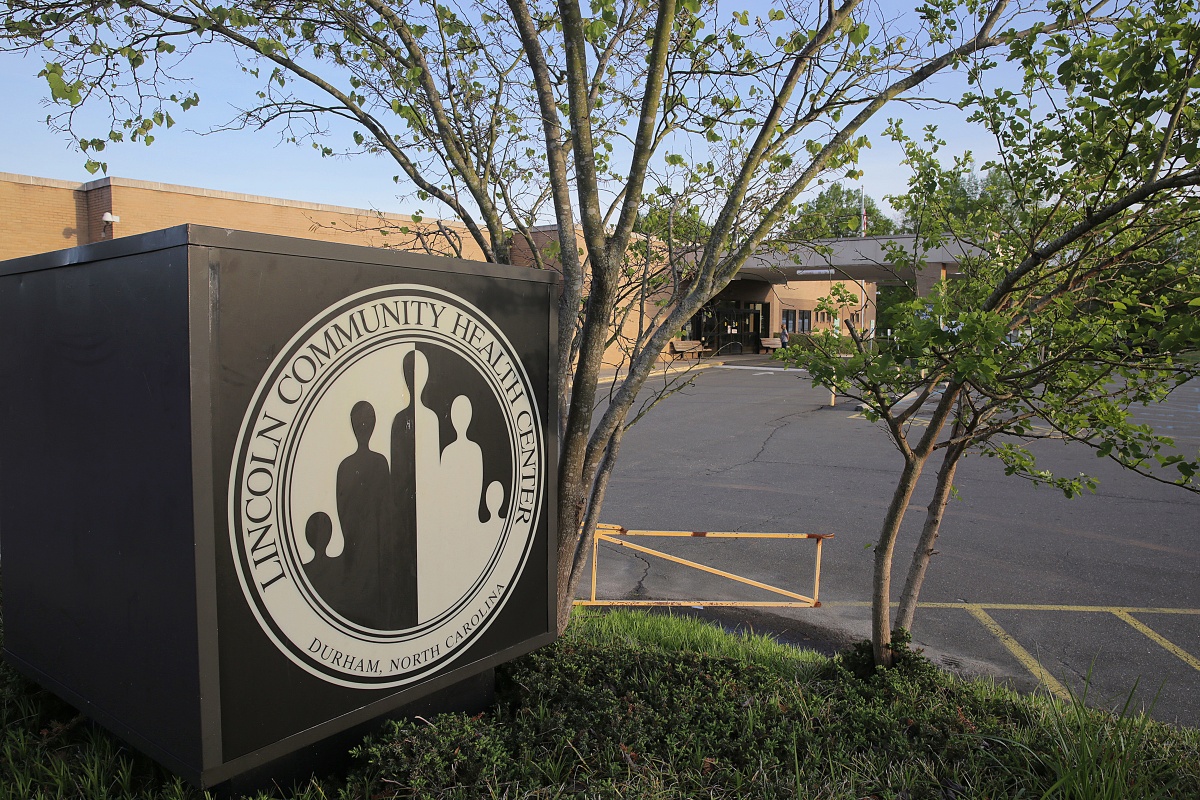
Three internal medicine residents have launched a volunteer program at Lincoln Community Health Center, aimed at strengthening the bond between Duke and Lincoln while helping to meet the needs of a vulnerable population.
Lincoln Community Health Center is a federally qualified heath center that for more than 40 years has provided care for low-income, uninsured, or under-insured patients in Durham.
“We have a long-term vision for a partnership between Lincoln and Duke,” said Dinushika Mohottige, MD, a senior assistant resident and one of the three trainees behind the program. “We’re all working for the same community and that community is Durham.”
As part of the program, a resident and a supervising faculty physician see patients at an evening clinic at Lincoln three Wednesdays a month. The program allows Lincoln to serve more patients those evenings, and it also provides a valuable opportunity for residents.
“After I [rotated] at Lincoln last year, I started to feel a different sense of connection to Durham and the people in our community," Dr. Mohottige said. She joined forces with residents Jacob Feigal, MD, a fourth-year medicine-psychiatry resident, and Lauren Collins, MD, a junior assistant resident, to figure out how to share that experience with others.
“We wanted to give other people who’ve never been there an opportunity to see what we were so excited about,” Mohottige said.
The first orientation for residents and faculty was held at Lincoln on Jan. 6, and the first volunteers reported to duty on Jan. 13.
We have a long-term vision for a partnership between Lincoln and Duke. Dinushika Mohottige, MD, senior assistant resident.
So far 16 residents and 10 faculty have filled a Wednesday shift or signed up to do so in the coming weeks.
Collins, Feigal, and Mohottige are fueled by a passion for working with underserved populations and addressing healthcare disparities.
“It has been a very fun challenge because we’re all inspired by the cause — to have Duke partner with a local member in the community and to have an avenue in our program for social action," Collins said.
Nevertheless, it wasn’t easy to develop a new program on top of their other commitments. “It’s been a joint effort,” Mohottige said.
Lauren Collins, MD; Dinushika Mohottige, MD; and Jacob Feigal, MD, started the residency's volunteer program at Lincoln Community Health Center.
Collins said, “I don’t think any one of us could have carried this out on our own but we’ve been able to rely on each other.”
Feigal said, “We just pick up and take over automatically when the others are too busy. The emails come, and one of us manages to respond in a timely fashion.”
They also are quick to point out that they couldn’t have made the program a reality without the involvement of many others—including, at Lincoln, CEO Philip Harewood, MBA, and CMO Howard Eisenson, MD, and, at Duke, Aimee Zaas, MD, MHS, associate professor of medicine (Infectious Diseases) and the director of the internal medicine residency program.
The seed for the volunteer program was actually planted several years ago by then-trainee Meredith Clement, MD, now a fellow in infectious diseases. “Despite a lot of great effort we weren’t quite able to organize and really put together a viable opportunity so the idea went on the back burner,” Dr. Zaas said. “In April 2015 we had an idea to build a Social Action Council within the residency training program.”
With the structure and support of the Social Action Council, Collins, Feigal, and Mohottige wrote a proposal for the volunteer program in fall 2015, with active input from Eisenson and others at Lincoln, including the Board of Directors.
As Lincoln’s chief medical officer, Eisenson wanted to make sure the program would be sustainable and would not create undue burden on Lincoln providers or staff. For this reason, he asked that Duke provide attending faculty physicians to supervise the residents. The Duke physicians who volunteered to work in this capacity needed to go through the credentialing process required by federally qualified health centers, which involves providing evidence of training, qualifications, and work history.
Eisenson also requested that residents be a “reliable presence.” Zaas said that those scheduled to work on a given evening may have their day-time clinic experience modestly reduced to guarantee that they can get to Lincoln by 5:30 p.m. In addition, each shift includes an alternate resident who can fill in if necessary.
So far, everything seems to be running smoothly.
“It’s going well,” Eisenson said. “People at Lincoln like the idea of exposing more trainees to what we do and the setting in which we operate. We’re hopeful this will help attract more people to work in underserved settings at Lincoln or elsewhere.”
On the Duke side, members of the Social Action Council are delighted with the level of interest among both residents and faculty. “We’ve been just thrilled,” Mohottige said. “Everybody is having a great time, and we’re pulling in all kinds of residents who’ve never been to Lincoln.”
As the program matures, the trio of residents hopes to scale up to four Wednesday evenings a month and/or two residents per shift. In addition, talks are underway to involve the School of Nursing and School of Medicine so that nursing and medical students can volunteer alongside residents and faculty.
“We’re trying to grow it sustainably so we can keep our end of the bargain — our promise to Lincoln,” Mohottige said.
Collins, Feigal, and Mohottige all expressed gratitude to everyone at Lincoln for their openness to the new program.
“It has been a real pleasure and honor to work with the staff at Lincoln — Dr. Eisenson and across the spectrum of scheduling staff and nurses and CMAs,” Collins said. “We’ve been overwhelmed by the hospitality they’ve offered us.”
In addition to those already mentioned, Edwina Gabriel, Lincoln’s director of nursing, and Betty Bjurman, Lincoln’s schedule coordinator, have been essential to the smooth functioning of the Wednesday evening clinics.
